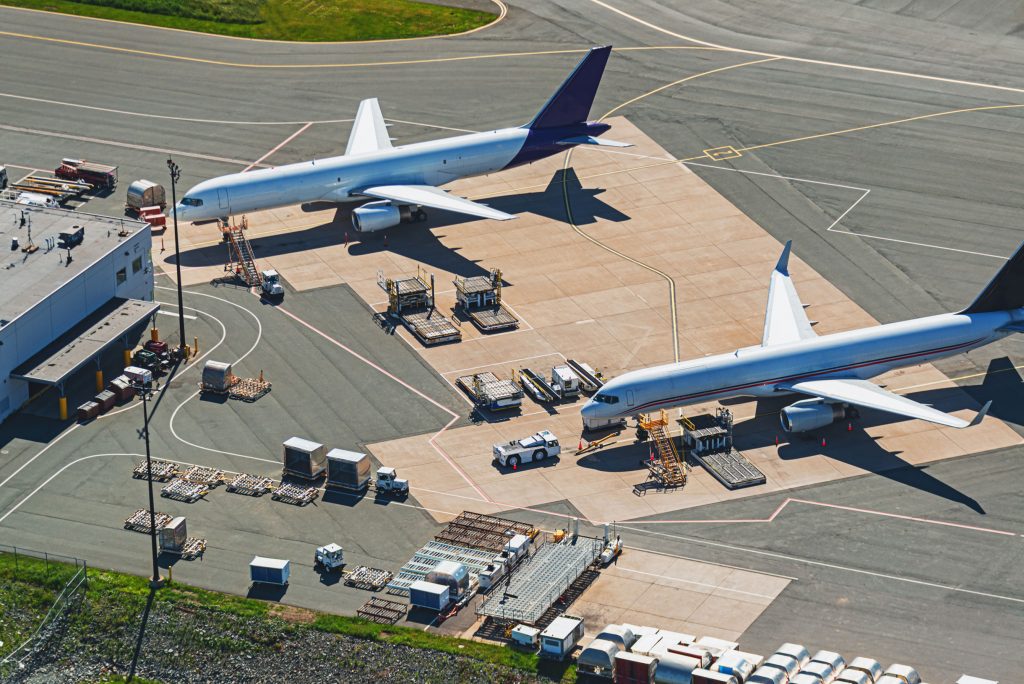After being drawn in to studying Aircraft Engineering with Pilot studies by our exceptional facilities, read Sabah’s story on how she made the decision to come to study at the University of Salford, why she loves it and where she hopes to use her degree here in her future career.

Why did you choose to study at Salford?
I chose to study at Salford University due to the exceptional resources and facilities it offers, which have greatly enriched my learning experience and supported my professional growth. My decision was solidified after attending an open day, where the staff were incredibly helpful, thoroughly answering my questions and providing a lab tour that showcased the advanced equipment available. The university’s range of specialised resources, including various wind tunnels and simulators, demonstrated a commitment to hands-on learning and real-world application. This experience confirmed that Salford University was the ideal choice for building a strong foundation for my career in aerospace engineering.
What made you want to study this course?
I chose this course because of my strong enjoyment of Mathematics and Physics during my GCSEs and A Levels, combined with my longstanding interest in the aviation industry. My passions and strengths naturally aligned with this field, leading me to explore a course that could harness these abilities effectively. A major deciding factor was the inclusion of pilot studies, which offered the opportunity to gain insight into both engineering and piloting. Since I have always been interested in becoming a pilot but was unsure of the exact path I wanted to take, this course provided the ideal blend, allowing me to pursue both technical and practical aspects of aviation.
Tell us a bit about your course. How would you describe it to someone who knows nothing about it?
The Aircraft Engineering with Pilot Studies course provides a comprehensive foundation in the essential engineering principles and practical skills needed for a career in aviation. It covers critical engineering topics such as aircraft structures, which delve into the physical framework of airplanes; dynamics, focusing on the forces and motions acting on the aircraft; and materials, which involves understanding the properties of materials used in aerospace applications. The course also emphasises aerodynamics, exploring how air flows around aircraft, and avionics, which encompasses the electronic systems used for communication, navigation, and control.
In addition to the technical engineering components, the course addresses key areas related to aviation safety, ensuring students understand the protocols and procedures essential for secure flight operations. It also includes studies in meteorology to provide insight into how weather impacts flight, as well as navigation systems, which are critical for guiding aircrafts. By covering both engineering and pilot studies, this program prepares students for a variety of roles in the aviation industry, offering a balanced blend of theory and real-world application.
What advice would you give to someone thinking of studying here?
If you’re considering studying at Salford University, my advice would be to take full advantage of the resources and support available. Attend open days and workshops to get a feel for the campus environment and the facilities. Engage with faculty and current students to gain insights into the courses and what to expect. Don’t hesitate to ask questions and seek help; the university staff are approachable and willing to assist. Additionally, immerse yourself in extracurricular activities and networking opportunities, such as industry talks and events, to broaden your experience and connections in your field. Finally, stay organised and proactive in your studies, as the combination of theoretical learning and practical application will be key to your success.
What does a typical day in your life look like?
A typical day in my life begins with a morning commute to the university, where I usually have a lecture scheduled for 9 AM. Following the lecture, I attend tutorials and then take a break for lunch. During any gaps between my lectures, I utilise the library for independent study, where I review and rewrite my lecture notes and complete any assigned tutorials. Alternatively, I sometimes take a walk around Peel Park to clear my mind and take a break from my studies. After my classes, I commute back home to prepare for the following day.

What do you think of the facilities and equipment? Is there anything you particularly enjoy using?
The facilities for my course are exceptional and played a crucial role in my decision to attend this university. The equipment available, particularly the wind tunnels, has greatly enriched my learning experience. I find using the wind tunnels particularly enjoyable, as they provide a hands-on approach that significantly enhances my understanding of aerodynamics. Working with this equipment allows me to visualise and apply the theoretical concepts I’ve studied in lectures, bridging the gap between theory and practice. Overall, the quality of the facilities has not only solidified my technical skills but also fueled my passion for aerospace engineering.
What is your favourite thing about being a University of Salford student?
My favourite aspect of being a University of Salford student is the supportive and collaborative learning environment. The staff are approachable and genuinely invested in our success, providing guidance and encouragement throughout our studies. Additionally, the sense of community among students is inspiring; we often work together on projects and share resources, which encourages a spirit of collaboration. This supportive atmosphere, combined with the excellent facilities and opportunities for practical learning, makes my experience here both rewarding and enjoyable.
Where do you want your degree to take you? What is your dream job and how do you think your degree will help you get there?
I am currently exploring various career paths within the field of aerospace engineering and am grateful for the versatility that my degree offers. While I do not have a specific direction in mind just yet, I appreciate that my degree provides a strong foundation that allows me to pursue opportunities across different sectors of engineering. I aspire to gain experience in various areas, such as aircraft design, avionics, and aircraft systems, to identify which aligns best with my interests and strengths. This exploration will not only enhance my technical skills but also give me a broader understanding of the industry, helping me make informed decisions about my future career. Ultimately, I envision my degree as a stepping stone toward my dream job in the aerospace sector, where I can contribute to innovative projects and advancements in aviation technology.